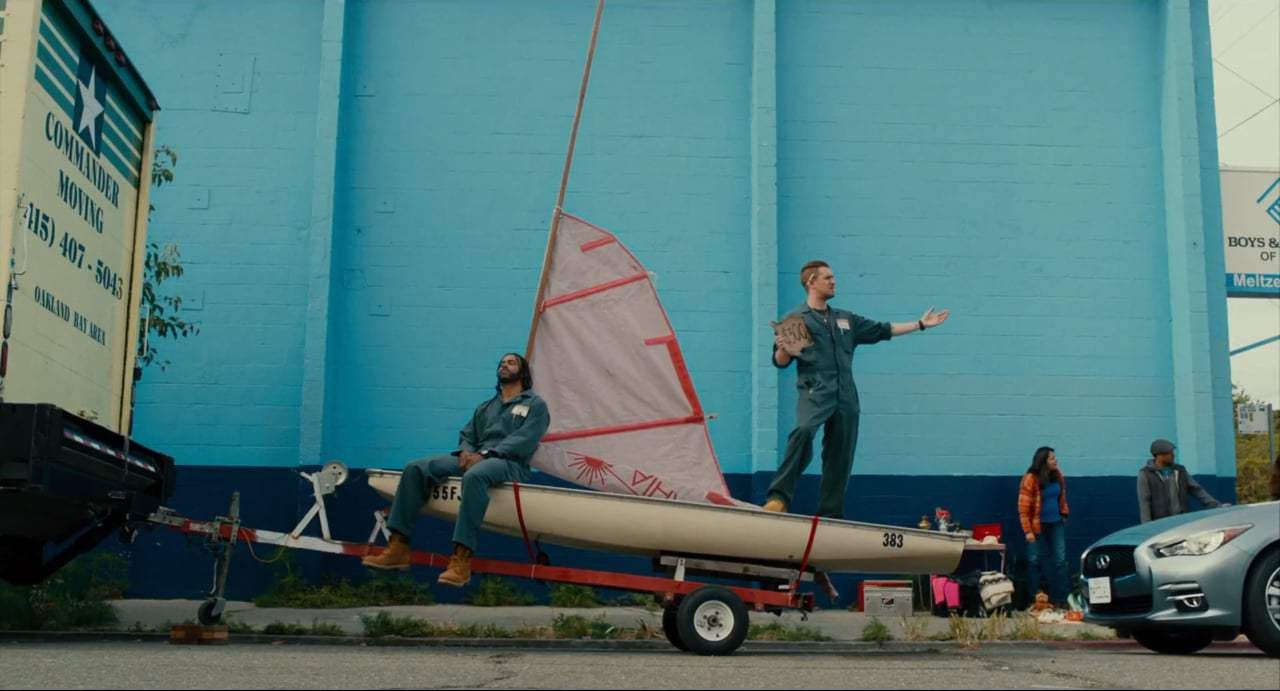Movies about race are most often – like very, very, very often – biopics and/or fictionalized documents of historical events. Don’t get me wrong, I think films like Selma and 12 Years a Slave can be amazing and important [Steve McQueen forever!], but the films on this list are refreshingly divergent from the norm. From the powerful oscar-bait biopic to the toxic white savior narrative, these filmmakers have thrown away all those recipes that studios and filmmakers normally follow to make racially themed movies.
Each entry is a fresh, vital contribution to the larger cultural conversation. And speaking of conversations, the invitation to the RtM antiracist movie club is still open. It’s been amazing so far!
Every film on the list was made by people of color, and they all focus primarily on Black Americans. Any future lists will branch out into the experiences of other communities. With that said, on with the show!
Here are five mold-breaking antiracist movies that you should DEFINITELY watch.
—————
Da 5 Bloods
Spike Lee’s Do the Right Thing is the quintessential example of the mold shattering antiracist movie, so it should come as no surprise that he shows up on this list.
In his follow-up to BlacKkKlansman – which despite technically being a biopic, could have made this list in its own right – the director has delivered one of the Spike Lee-est Spike Lee Joints that ever Spike Leed. His stylized approach to filmmaking is used to great effect to tell an emotionally powerful story that tackles perennially relevant issues – like race, war, politics, family, mental illness, guilt and money – in a world where America used Black, Vietnamese, and poor White bodies as cannon fodder in pursuit of consolidating power and wealth for the American ruling class.
For my money, this is one of Lee’s best films, and Delroy Lindo should win all of the things.
Also, if you still haven’t seen Do the Right Thing, now would be a great a time to rectify that!
Update: Hours after this was originally posted, we all found out that Chadwick Boseman – who costarred in Da 5 Bloods, has died after a years-long battle with colon cancer. It felt right to come back and mourn a remarkable talent, and by all accounts I’ve seen, a good man. Rest in Power, Mr. Boseman. Wakanda Forever.
—————

—————
Blindspotting
Oakland’s own Daveed Diggs and Rafael Casal wrote and star in this powerful, remarkably singular piece of filmmaking. Set in today’s Oakland, Blindspotting tells a poignant story at the intersection of race, gentrification, criminal justice, and prejudice, and it does so with energy and humor, somehow managing to feel ebullient even as it tackles dark themes with gravity.
You’ve never seen anything like Blindspotting before. It’s the movie we didn’t know we needed [or wanted], but absolutely did. Watch it!
Also, can we all agree to offer up thanks to whatever gods gave us Daveed Diggs?
—————

—————
Queen & Slim
Like Blindspotting, Queen and Slim is a truly unique film. Writer Lena Waithe and director Melina Matsoukas collaborated to tell a heartbreakingly beautiful story that not only transcends the all too common lazy, paint-by-numbers movies about race, but transcends the majority of film of any sort.
It’s a love on the run road movie where literally everything works: the visual style, the characterization, the tension, the performances, the humor, the dialogue, the locatedness in the cultural conversation, etc. etc. etc.
Seriously, friends, can you just watch all the movies on this list?
—————

—————
Dear White People
Dear White People is a razor-sharp comedy that feels like a series of powerful, Black-led conversations on race distilled into a movie. It provides a clear-eyed glimpse into some of the microaggressions, appropriation, power dynamics, and other bullshit Black people have to deal with every single day, challenging the unchecked beliefs, assumptions, and blind spots that keep white people participating in and feeding racism. Also, it’s not as heavy as the above films.
The movie has since been adapted into a Netflix show, which is still running at the time of this writing.
—————

—————
Get Out
Okay, okay, okay, I know everyone’s already seen this one, but how could I leave Get Out off this list?!
So, you know, watch Get Out again.
—————

—————
Important endnote: In the week between deciding to write this post and publishing it, another Black man has been shot by police without cause. Four. Fucking. Bullets. In. His. Back. And three more bullets that missed.
It’s horrifying how unsurprising that is. To be honest, it may have been more surprising if the cops had gone two weeks without shooting a Black person on video. That’s how fucking bad this is! Can you imagine how much worse things were before cell phone recordings? Before police violence was a central part of the national consciousness? It’s been said again and again, but this is how they act when they know everyone’s watching!
Black bodies continue to be lynched, and not just without legal recourse, but by “law enforcement” itself. Meanwhile, a huge part of the population, along with much of the media, blame the victim nearly every time. It’s a horrifying symptom of the terminal disease of racism, a disease genetically grafted into America’s DNA from the beginning.
So, while education and cultural exegesis can be helpful [I love both dearly], they’re useless if they don’t lead to tangible work to replace racist policies with antiracist ones. Watching antiracist movies doesn’t change anything, but things like this help me keep fighting, and I believe it can help us fight smarter, and with more empathy and understanding. But we can never allow it to take the place of the actual fight, or else all we’re doing is assuaging our guilt while we change absolutely nothing.]]



